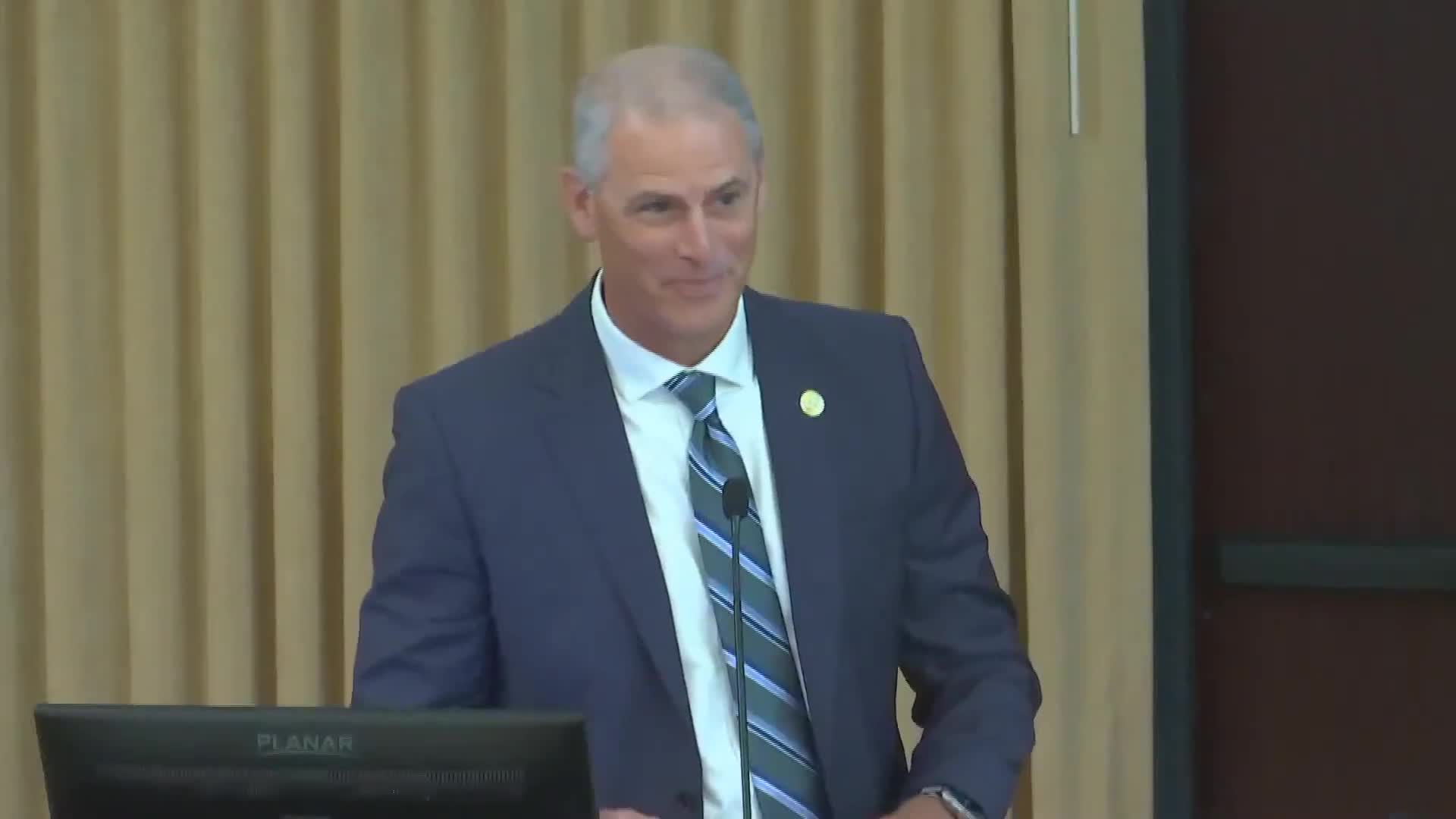Article not found
This article is no longer available. But don't worry—we've gathered other articles that discuss the same topic.
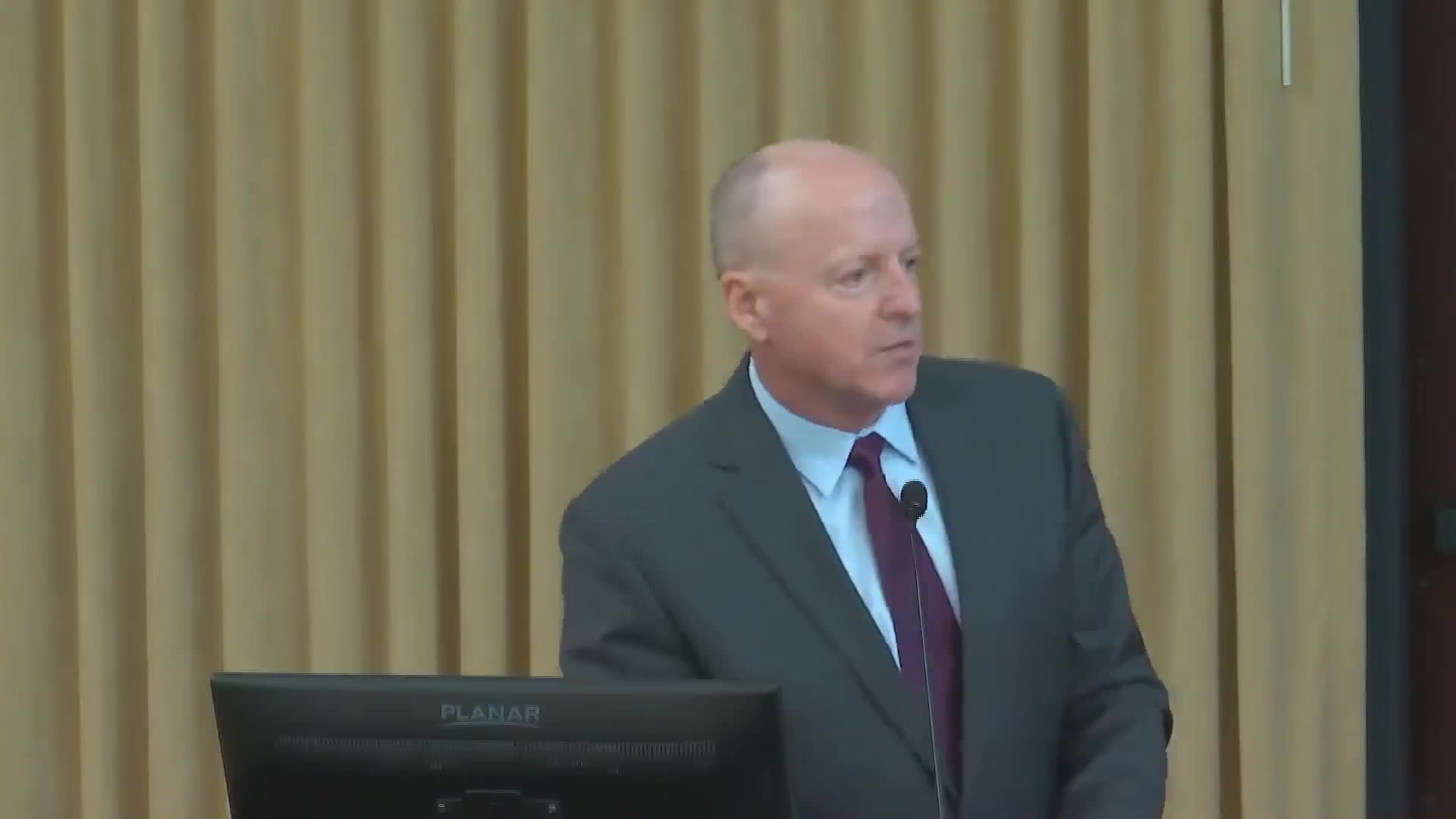
Airport commission seeks long‑term funding, reports record activity and development interest
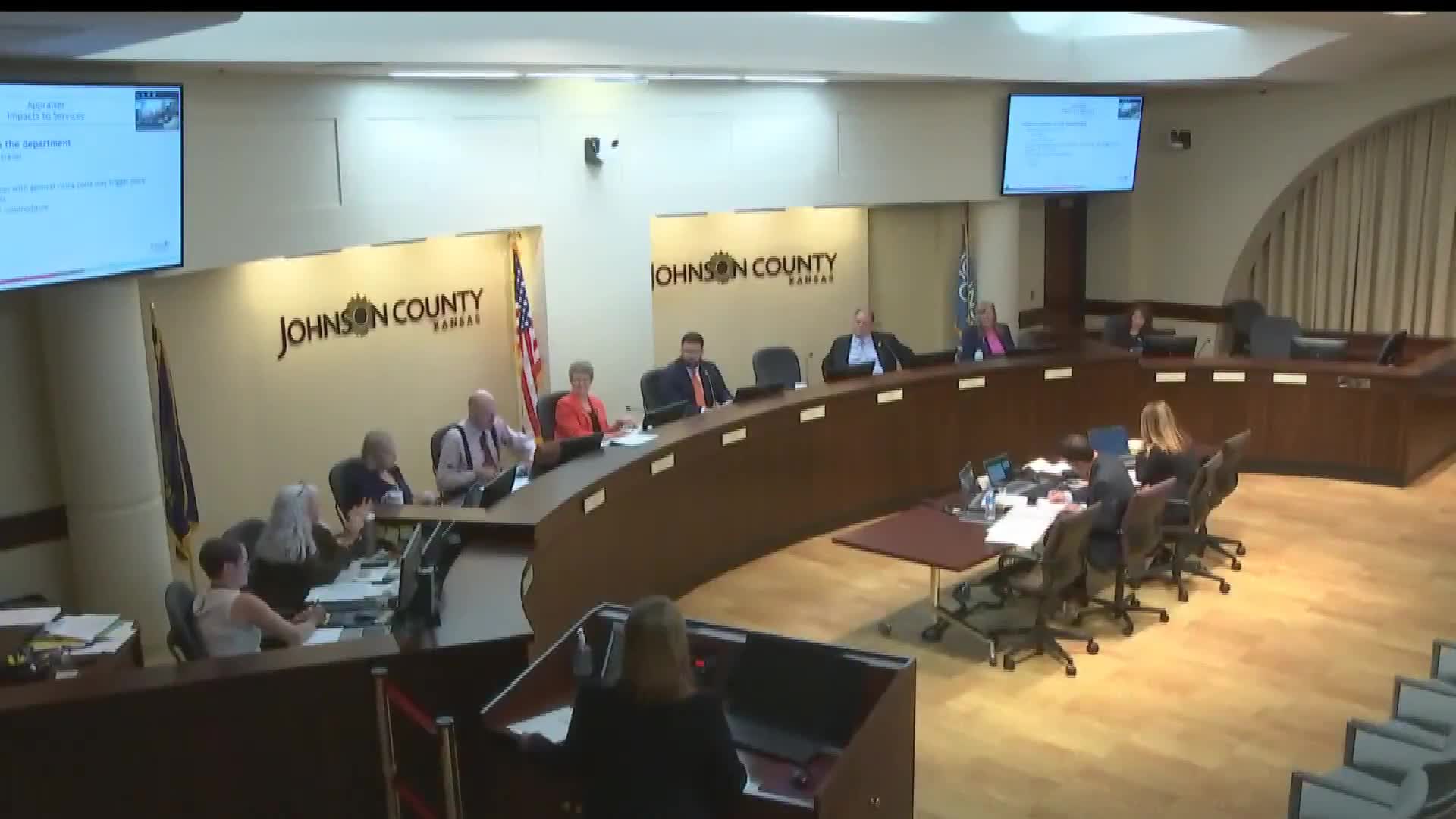
Facilities outlines energy savings, deferred capital and fleet needs as budget pressures
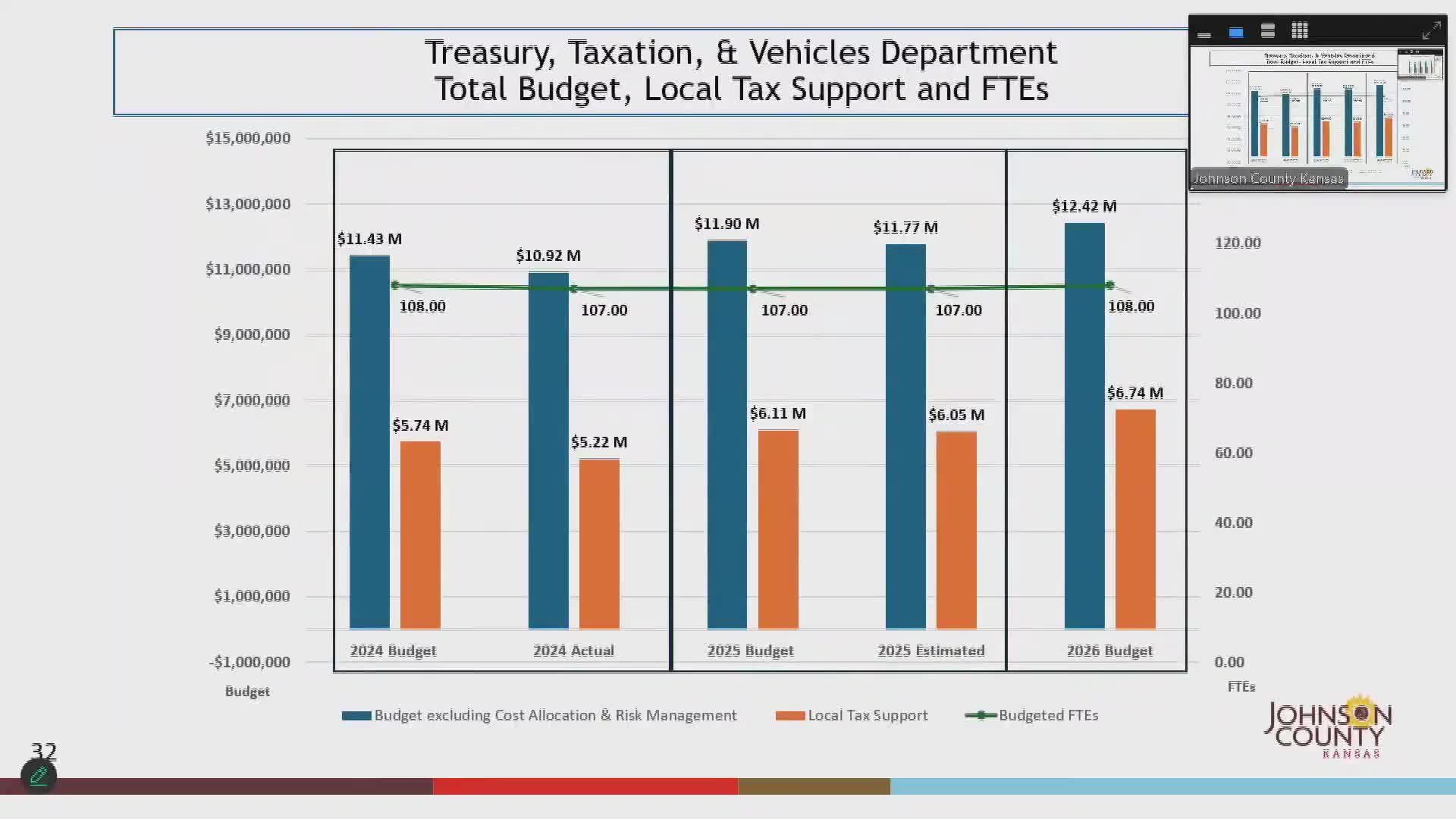
Treasury, taxation and motor vehicle services present staffing squeeze; county subsidizes state motor vehicle function
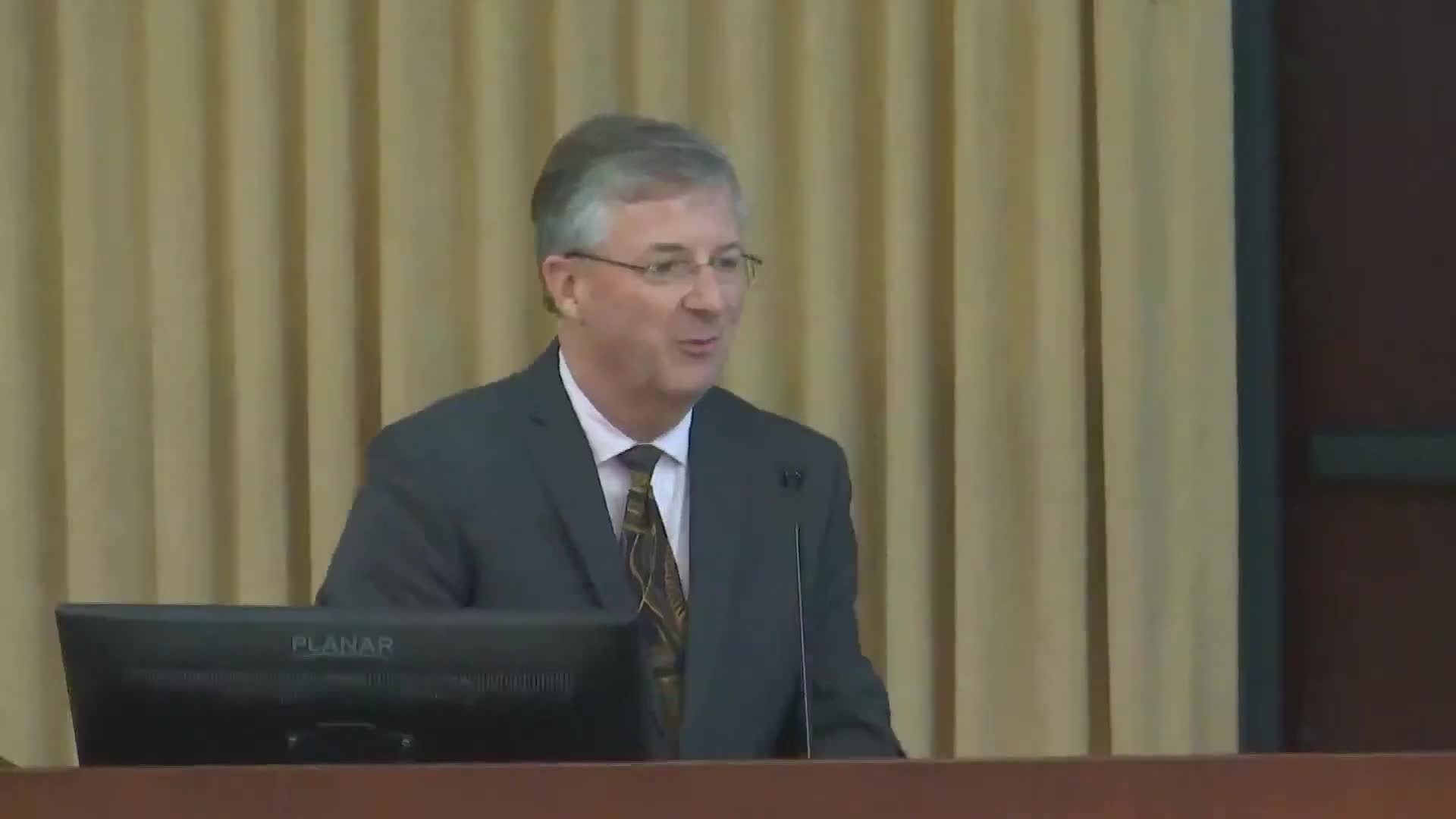
Election office briefs commissioners on 2026 budget needs, equipment lifecycle and vote‑by‑mail challenges
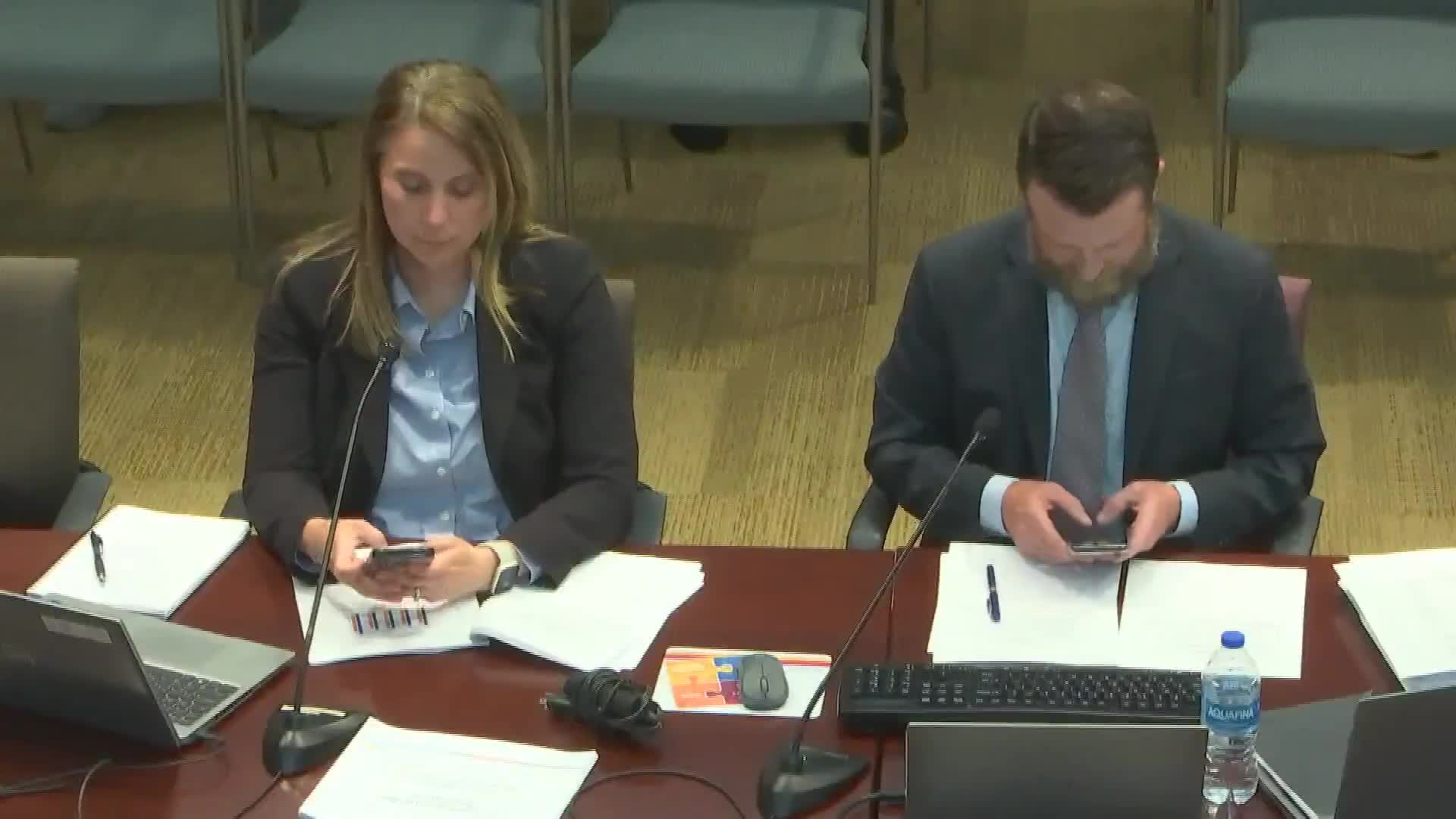
Johnson County Library seeks funds for Corinth replacement, withdraws tax‑supported staff requests
